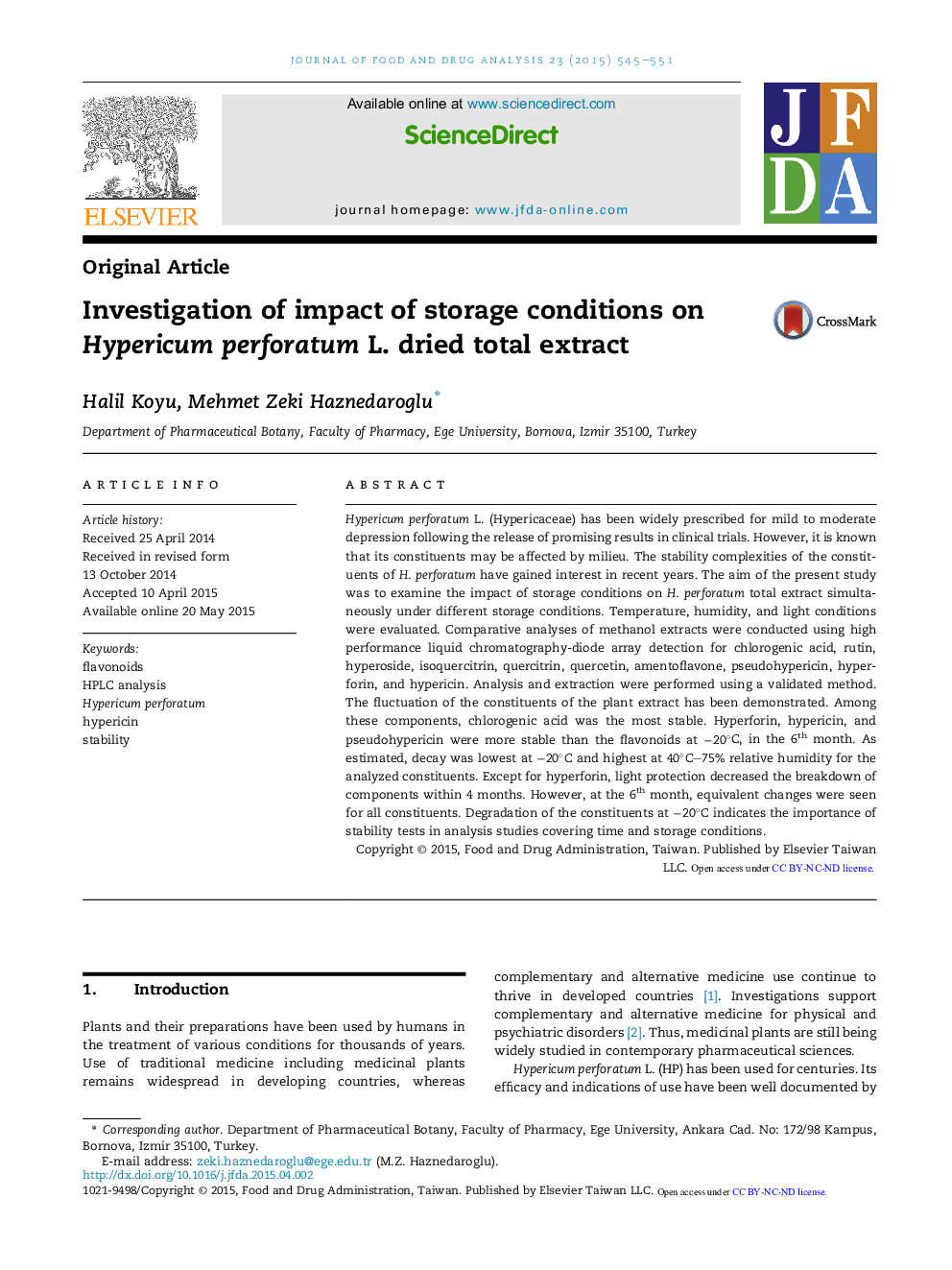| کد مقاله | کد نشریه | سال انتشار | مقاله انگلیسی | نسخه تمام متن |
|---|---|---|---|---|
| 2507456 | 1117488 | 2015 | 7 صفحه PDF | دانلود رایگان |

Hypericum perforatum L. (Hypericaceae) has been widely prescribed for mild to moderate depression following the release of promising results in clinical trials. However, it is known that its constituents may be affected by milieu. The stability complexities of the constituents of H. perforatum have gained interest in recent years. The aim of the present study was to examine the impact of storage conditions on H. perforatum total extract simultaneously under different storage conditions. Temperature, humidity, and light conditions were evaluated. Comparative analyses of methanol extracts were conducted using high performance liquid chromatography-diode array detection for chlorogenic acid, rutin, hyperoside, isoquercitrin, quercitrin, quercetin, amentoflavone, pseudohypericin, hyperforin, and hypericin. Analysis and extraction were performed using a validated method. The fluctuation of the constituents of the plant extract has been demonstrated. Among these components, chlorogenic acid was the most stable. Hyperforin, hypericin, and pseudohypericin were more stable than the flavonoids at −20°C, in the 6th month. As estimated, decay was lowest at −20°C and highest at 40°C–75% relative humidity for the analyzed constituents. Except for hyperforin, light protection decreased the breakdown of components within 4 months. However, at the 6th month, equivalent changes were seen for all constituents. Degradation of the constituents at −20°C indicates the importance of stability tests in analysis studies covering time and storage conditions.
Journal: Journal of Food and Drug Analysis - Volume 23, Issue 3, September 2015, Pages 545–551